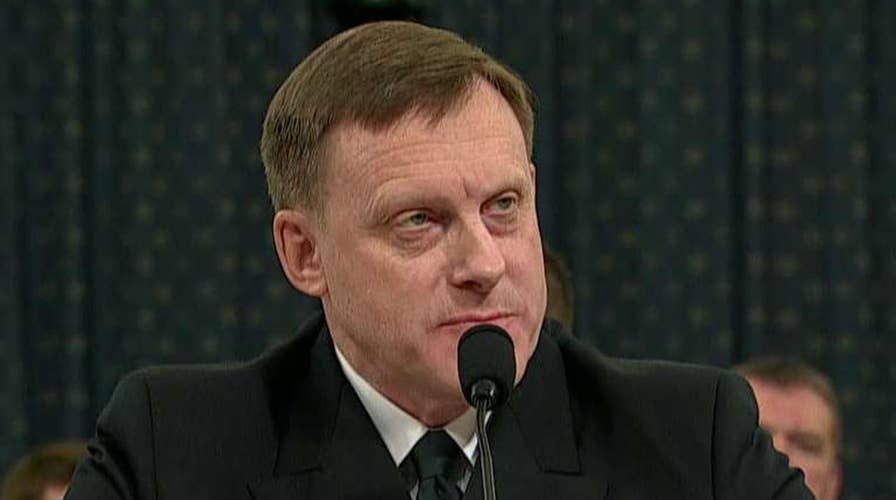NSA director: We are greatly concerned about leaks
Mike Rogers gives opening statement at House Permanent Select Committee on Intelligence hearing on Russia's involvement in 2016 election
In a rare public hearing before the House Intelligence Committee, FBI Director James Comey suggested on Monday that recent leaks of classified information to the press are not only criminal – they likely fit the definition of espionage.
Monday’s hearing was billed as a discussion about the committee's investigation into possible Russian interference during the 2016 U.S. presidential campaign. It quickly became clear, though, that questions about leaks were also weighing heavily on the minds of lawmakers.
"Leaks of classified information are serious, serious federal crimes for a reason," Comey said during his opening statement. He added that those behind the leaks "should be investigated and where possible prosecuted in a way that reflects that seriousness so that people understand it simply cannot be tolerated."
COMEY CONFIRMS FBI PROBING RUSSIA-TRUMP TEAM LINKS, DISPUTES WIRETAP CLAIM
Joining Comey for questioning was National Security Agency Director Mike Rogers. During the hearing, lawmakers discussed the leaking of information about former White House National Security Advisor Michael Flynn, who was forced to resign last month after less than a month on the job.
Intel Committee Chair Devin Nunes (R-CA) told Comey that he remains "extremely concerned" about what he called "widespread illegal leaks.” When Nunes asked whether giving classified information to the press could be considered a violation of the Espionage Act, the FBI director responded with a flat out "yes."
Comey seemed a lot less sure when pressed by Rep. Trey Gowdy, R-S.C., on whether journalists could be prosecuted for publishing the same kind of classified information.
NSA CHIEF, GOP LAWMAKERS RIP 'UNACCEPTABLE' LEAKS
"That's a harder question," Comey said. "I don't think a reporter's been prosecuted -- certainly in my lifetime, though."
Journalist Carl Bernstein, best known for his work on the Watergate scandal, suggested on Twitter on Monday that "many intel members now decrying 'leaks' of classified info have themselves 'leaked' classified info knowingly."
Rep. Chris Stewart, R-Utah, pointed out that there are other, less dangerous ways for frustrated government employees to make their grievances known, with Comey confirming that "all of us in the intelligence community have robust whistleblower provisions that we educate our folks on, and part of the whistleblower track is they can bring information to the appropriate committee of Congress."
"Knowing that, I find it hard to justify any classified information that is leaked," Stewart said. "And I hope you find those guys and I hope you crack them on the head."













































